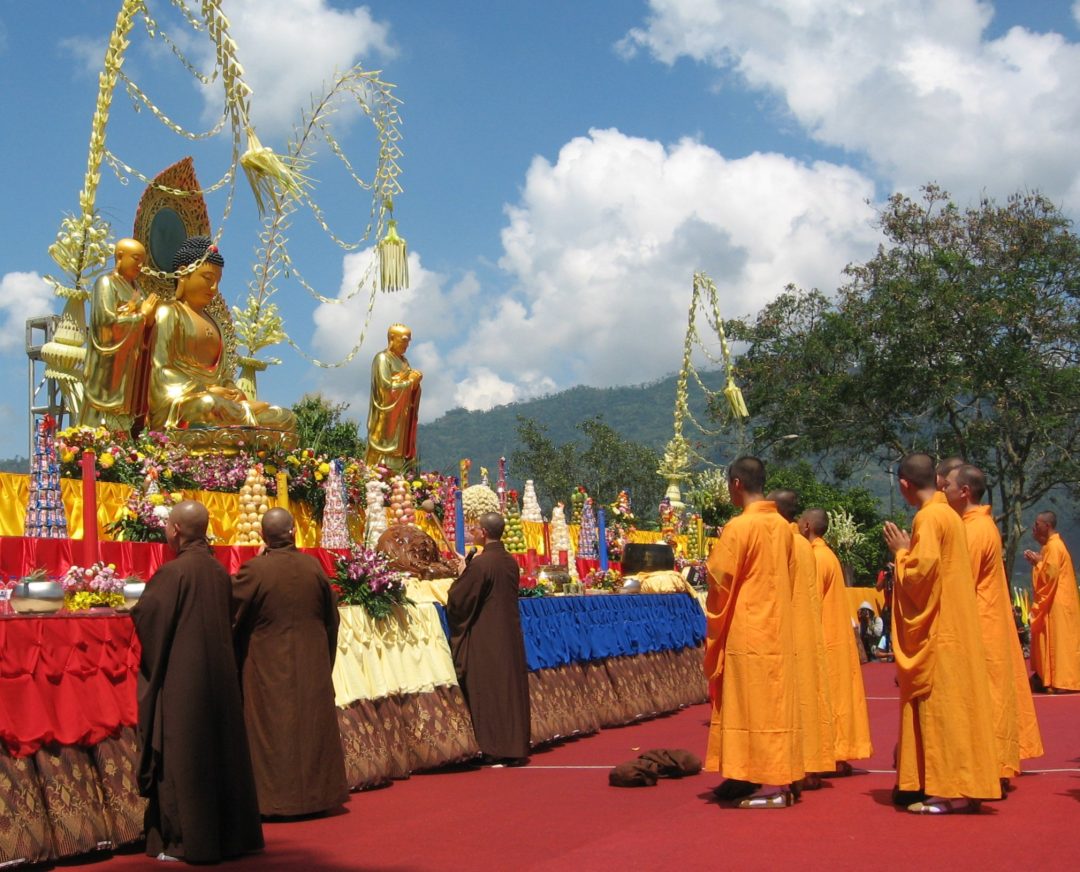The ten meritorious deeds of Buddhism serve as a guide for a person who seeks a happy and peaceful life. It guides by developing knowledge and understanding of the person who seeks peace. The ten meritorious deeds should be applied only when sufficient faith in, and understanding of, Buddha have been reached.
The ten meritorious deeds of Buddhism are:
1. Daana – Generosity
To give generously and freely to those who deserve gifts has a profound impact on the whole.
2. Siila – Morality
One’s ethical conduct benefits all beings who come into contact with the individual.
 3. Bhavanaa – Meditation
3. Bhavanaa – Meditation
The mental development through meditation. Bhavanaa brings peace to oneself and inspires others to seek peace as well.
4. Apacaayana – Reverence
Showing respect to elders, parents, teachers, monastics, officials, and all those in an important or senior role. Apacaayana creates harmony in society.
5. Veyaavacca – Service
Providing service and assisting others to do meritorious deeds. Veyaavacca promotes the Dhamma and improves the lives of others.
6. Patidaana – Transfer of Merit
The transfer of merit to others. Patidaana shows compassion towards others’ welfare.
7. Pattaanumodana – Rejoicing in Others’ Merit
Rejoicing in others’ merit and congratulating them during their meritorious conduct encourages them and others to perform more merits.
8. Dhammasavana – Hearing the Doctrine
Hearing or reading and studying the Dhamma.
9. Dhammadesanaa – Expounding the Doctrine
The teaching of the Dhamma through writing or speech. Dhammadesanaa helps spread the teaching
10. Ditthijukamavasena – Straightening One’s Right View
Continually studying the Dhamma to be sure that one understands the Dhamma correctly. This enables a person to show the beauty of the Dhamma to others.
What does Buddhism teach?
Buddhism teaches that, through the application and perfection of the ten meritorious deeds, one can reach an enlightened state. Through the practice of the ten meritorious deeds, one can not only benefit himself or herself but can benefit anyone they come into contact with as well. Therefore, practicing and applying the deeds is extremely beneficial to society as a whole, as it creates harmony between the people.
From a Christian and Western perspective, there is a very core truth in the teachings of Buddha. Many parallels exist between what Jesus Christ and Buddha preached. Although the two doctrines have their differences, both teachings support being an overall good and genuine person and it is difficult to see how anyone can argue with that.
References:
–http://buddhistbugs.blogspot.com/2009/02/10-meritorious-deeds-kusala.html
–http://www.buddhistdoor.com/oldweb/bdoor/archive/nutshell/teach5.htm#t54
–http://www.buddhanet.net/budsas/ebud/whatbudbeliev/156.htm
–http://kalyaano.blogspot.com/2009/08/ten-bases-for-meritorious-deeds.html





